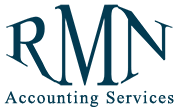When it comes to sustainability in business, there’s a misconception it’s all down to big conglomerates and huge commercial outlets to take care of the planet.
However, like anything, change starts from the ground up – planting seeds towards more environmentally sound practices doesn’t have to be exclusive to companies that generally take up more space.
Issues like carbon footprint don’t just affect the big guys, we can all benefit from careful analysis of our business value chains and hopefully begin contributing towards a cleaner, greener future.
So what are the steps smaller enterprises can manage and where should they start?
Review value chains
When deciding on how sustainable a business’s operations are, consider:
- inputs used for products or services;
- how those products or services are used – are you maximising efficiencies;
- what is the overall output? Is it consistent with the sustainable development goals (SDG)? How can we make it so?
- how is your waste being managed?
Why should small enterprises take sustainability into consideration at all?
Ultimately it’s a win-win scenario as looking at these areas can help to highlight more cost-effective procedures they could be using – leading to savings for them and the planet!
Knowing how their operations are affecting the world around them can help influence how decisions about the suppliers used are made at different stages of the processes (from input materials to stationery and energy suppliers).
Being equipped with this information can also help business owners consider whether their external hiring fits with goals connected to the SDG framework.
They should ask themselves:
- Do they re-cycle products (eg printer cartridges), use paper or reusable cups?
- Do they treat their employees properly?
- Do they contribute to their community in some way?
By analysing and considering the business’s impact, there may be savings to be made along the way BUT there may also be ways in which you can contribute to the SDGs and help make the world better, while still achieving your own business targets.
What are sustainable development goals?
The Sustainable Development Goals (SDGs) – also known as the Global Goals – act as a universal call to action to “end poverty, protect the planet and ensure that all people enjoy peace and prosperity by 2030”.
All 17 specific targets were adopted in a way that acknowledges action taken in one area will impact outcomes in others – and that developments made must balance economic, social and environmental sustainability.
In brief, the goals are as follows:
- No poverty
- Zero hunger
- Good health and well being
- Quality education
- Gender equality
- Clean water and sanitation
- Affordable and clean energy
- Decent work and economic growth
- Industry, innovation and infrastructure
- Reduced inequalities
- Sustainable cities and communities
- Responsible consumption and production
- Climate action
- Life below water
- Life on land
- Peace and justice strong institutions
- Partnerships for the goals
Little things small businesses can do to take real action:
- Re-cycle and use re-cycled products;
- Switch off the lights and equipment;
- Think about suppliers – in terms of electronic invoicing (saves paper), cloud based accounts systems (less paper moving around between you and your book keeper/accountant)
- Spend carefully with suppliers who think like you do
- Tell your customers how you are operating a green workspace and are environmentally or socially responsible (contributing to your community) – many consumers take this in to consideration in making purchasing decisions
Case study: Meet our client Re-Cycle Bikes
https://www.facebook.com/ReCycleDublin
Re-Cycle Bikes is a second hand bike shop that was set up during the first lockdown.
Despite worries over the climate in which they founded their small business, the company enjoyed a big uptake in their service and ended up evolving from operating out of their front garden to a new home in The Stoneworks, Ballyedmonduff Road, Stepasdie, Dublin 18.
Business owner Willo King explained: ‘At Re-Cycle we sell bikes, we repair bikes and now we scrap bikes sustainably.’
‘In three years we have taken over 25 tonnes of bikes that were going to landfill. We are passionate about recycling’.
Overwhelmed by the influx of happy customers, Willo decided to enlist our help in order to remain on top of things.
‘I first met Rachael Nolan at a networking event’, she shared. ‘It is rare to find an accountant with a sense of humour!
‘We hit it off immediately and I asked for advice. Rachael’s professionalism, knowledge and understanding of how a small family business works has made all our accounting procedure’s seamless.
‘I would highly recommend RMN Accounting’.
At RMN accounting, we focus our business operations around making a conscious effort to work sustainably.
Holding a certificate in Sustainability for Finance from the ACCA, our founder can guide and assist your small business towards a cleaner, greener output while keeping the books on the straight and narrow – get in touch today!
